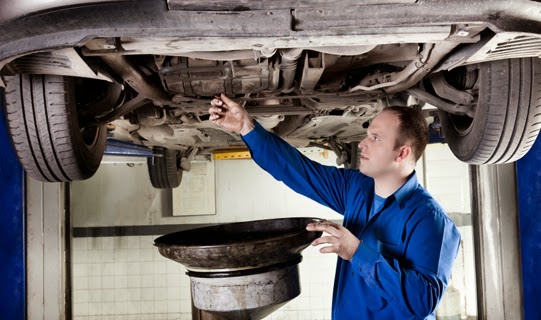 It makes sense to think that driving responsibly is enough to prevent a serious or even a minor road accident. It makes sense to think that getting your car serviced on a regular basis will eventually contribute to its overall safety. Is it fair to assume that do-it-yourself vehicle maintenance also increases the safety and security of a road legal vehicle?
It makes sense to think that driving responsibly is enough to prevent a serious or even a minor road accident. It makes sense to think that getting your car serviced on a regular basis will eventually contribute to its overall safety. Is it fair to assume that do-it-yourself vehicle maintenance also increases the safety and security of a road legal vehicle?
Well, of course it does. If you can learn how to perform some of the more basic acts of vehicle maintenance, you’ll not only save yourself a lot of money in garage fees – you’ll make your car a lot safer too. A well maintained car is much like a contented horse. It has an incredible amount of power and the ability to cause injury if it wanted to, but it has no reason to do anything but purr along delightedly. If you keep your car happy, you’ll keep the roads safe.
Windscreen Wipers – too few people are aware of the fact that it is illegal to drive without windscreen wiper fluid in your tank. If you run through a muddy ditch and your windscreen quickly fills with dirt, how are you going to safely see the road without fully functioning windscreen wipers? It might seem like a minor detail, but it really is important. After all, it costs nothing to check the health of your wipers once a month. You are advised to dig out your vehicle manual and find the correct levels for your windscreen wiper fluid, coolant and anti-freeze. This is especially vital during those cold, frosty winter months. If you can’t see the road, you can’t possibly drive safely. Direct Asia Hong Kong are on hand to ensure you have the appropriate cover.
Tyre Tread – this is one of the most important parts of your winter car care routine. The quality and tread of your tyres will have a huge impact on the safety and drivability of your vehicle. The condition of the roads will deteriorate during the winter months, as will the condition of your tyres. The legal minimum tread depth on tyres is 1.6mm, but the AA advise all motorists to make sure that their winter tyre tread is no less than 2mm – preferably 3mm for frequent winter driving. If you have the money, invest in a specially designed pair of winter tyres. They cost a little more than regular tyres, but they are the safest way to drive during particularly harsh cold snaps.
Radiators – if you want to avoid breaking down on a busy motorway in winter, check the health of your radiators on a monthly basis. The coloured (usually blue) liquid used in car radiators is called anti-freeze. It is designed to stop your engine and your radiators from freezing over during the winter. It is important that you check the level of anti-freeze on a regular basis, because it is amount imperative to the health of your vehicle. The best way to think about basic car maintenance is to directly equate the health of your car to its safety on the road – the two values are inexorably intertwined and always be. If you aren’t sure what the correct level should be, have a look at your vehicle manual – or ask a qualified mechanic for advice. Try to avoid having to guess, as an incorrect estimation can result in serious engine damage. If you break down in the middle of a busy road, you put other motorists and pedestrians in danger until you sort the situation out.

